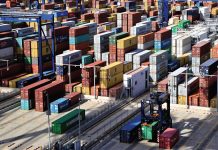By Ai Jun
After 20 years of war, the Afghan people, who have borne the brunt of the violence and turmoil, are in urgent need of getting rid of the suffering and starting reconstruction. Yet right after the unveiling of the new Afghan government established by Taliban, Western media outlets did not hesitate to lash out at the new cabinet.
On Tuesday, the Taliban Supreme Leader Hibatullah Akhundzada said the newly formed Taliban caretaker government will start functioning soon. The 33-member “interim government” will be led by Mullah Mohammad Hasan Akhund, according to Turkish Anadolu Agency.
Yet the Western world, especially Washington, is not happy to see this. Its media outlets are busy hyping up the fact that Akhund is on a UN blacklist, and the new interior minister, Sirajuddin Haqqani, is wanted by the Federal Bureau of Investigation with a $10 million reward. “Taliban name ex-Guantanamo detainees and wanted man to new caretaker government,” said a CNN headline on Tuesday. “Meet the New Taliban, Same as the Old,” mocked The Wall Street Journal.
The new cabinet does not look as inclusive as the Taliban previously vowed. “This is likely because the interim government wants to place the pursuit of stability as priority, and take greater tolerance into consideration after realizing relative peace first,” Liu Zhongmin, a professor at the Middle East Studies Institute of the Shanghai International Studies University, told the Global Times.
How to comprehend the new Afghan government is probably a difficult question to be answered for the world. But when the US spares no effort attacking the cabinet, it only looks absurd.
Who made Taliban where it is today? If the US is so against the force, why did it sit on the negotiation table with Taliban in the first place, reached an agreement with it and abandoned Ashraf Ghani government?
Taliban’s legitimacy was boosted after its negotiation with the US. Similarly, due to the failure of the US-backed Ghani government, Taliban’s taking power has become a reality. When Washington keeps on clamoring about how it is disappointed with the new cabinet in terms of Western values over so-called democracy and human rights, according to Liu, “why doesn’t it think about this – isn’t the US the one that offered Taliban the opportunity?”
The US is unconvincing when it is denouncing the Taliban government, trying to dominate global public opinion in this regard while pretending to have forgotten what it has done.
Washington finds it hard to digest the development of the Afghan situation because what happened there completely deviated from US expectations. All its investment in the country failed to pan out – ranging from US’ expected role in Afghanistan’s political transformation to US’ wish to restrict Taliban’s advancement.
Worse still, the US is promoting the case in the UN. It is pretentiously raising the tasks of anti-terrorism, humanitarian relief and avoidance of humanitarian disasters. “Washington is unbridling itself,” Liu told Global Times. “It is making the consequences of its own mistake a responsibility of the UN, Afghanistan’s neighboring countries and the whole world, while the most pressing question the US should ask itself is – who should shoulder the most responsibility for the difficulties in the governance of Afghanistan at the moment?” Liu asked.
Objectively speaking, compared with its past, the current Taliban did show some progress by showing to some extent tolerance toward its ex-government officials, promising on girls’ education and inclusive government.
In the future, Taliban needs to prove itself by doing more in building an open and inclusive government, adopting moderate and prudent domestic and foreign policies, and resolutely cracking down on all kinds of terrorist forces.
–The Daily Mail-Global Times News Exchange Item





